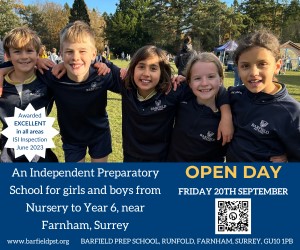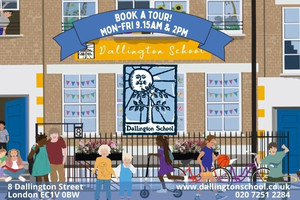Making Science Fun For Children
Science is an important subject, but it doesn’t always feel accessible for children.
That said, children are naturally curious. And many of the things they are curious about are science based questions - they just don’t immediately seem like something you’d find in a science lesson.
According to the National Careers Service, seventy per cent of all businesses employ people with STEM (science, technology, engineering and maths) skills - but many are struggling to recruit the staff they need. It’s highly likely that our children will grow up to work in careers that involve science in some way.
Most children will enjoy and engage with any kind of practical science experiment or demonstration, but the theoretical side can seem daunting and hard to master. Apparently children’s interest in science is already shaped before they leave primary school - so it’s important to encourage them.
So how can you channel your child’s natural curiosity about the world around them into a love for science? Obviously schools have a large part to play in this, but as a parent there are lots of things you can do to foster that love for science.
Watch YouTube Videos
There are loads of science experiments demonstrated on YouTube. This video has 9 examples of experiments you can do at home with your child. They’re all fairly simple and straightforward - and the text beneath the video includes links to lots of other videos. This is a great place to start for ideas and inspiration.
Take It Outside
The world of the great outdoors is the perfect place to learn about biology. Children usually love searching for minibeasts, and they can easily build a bug hotel to attract little critters. Watching frogspawn develop into tadpoles and then frogs is also a great way to get children engaged. Using books or websites to help you identify different types of plant, tree or bird is also fun.
Make A Volcano
This one never seems to get old, and you can compare two different types of volcano. On one side: a bottle of cola with Mentos sweets dropped in (stand well back!) On the other side: bicarbonate of soda in the bottom of a bottle, with vinegar poured in on top. Which one is most explosive? Which one seems more realistic as a volcano? Can you look online and see if you can find out why these materials react in these ways?
Grow Plants And Vegetables
It’s one thing to be told that plants need sunlight and water to grow - but actually planting a seed and watching it grow into a flower, or even something you can eat - is another matter entirely. Children can learn a lot from planting their own seeds, watering them and watching them grow.
Visit A Science Museum
Science museums are brilliant for making science fun - and also for explaining things in a really accessible way. The Science Museum in London is always great for a day out - but if you don’t fancy a trip to London there are plenty of other science centres across the country. Manchester has the Science and Industry Museum; Winchester has a Science Centre and Planetarium; Bristol has We The Curious.







